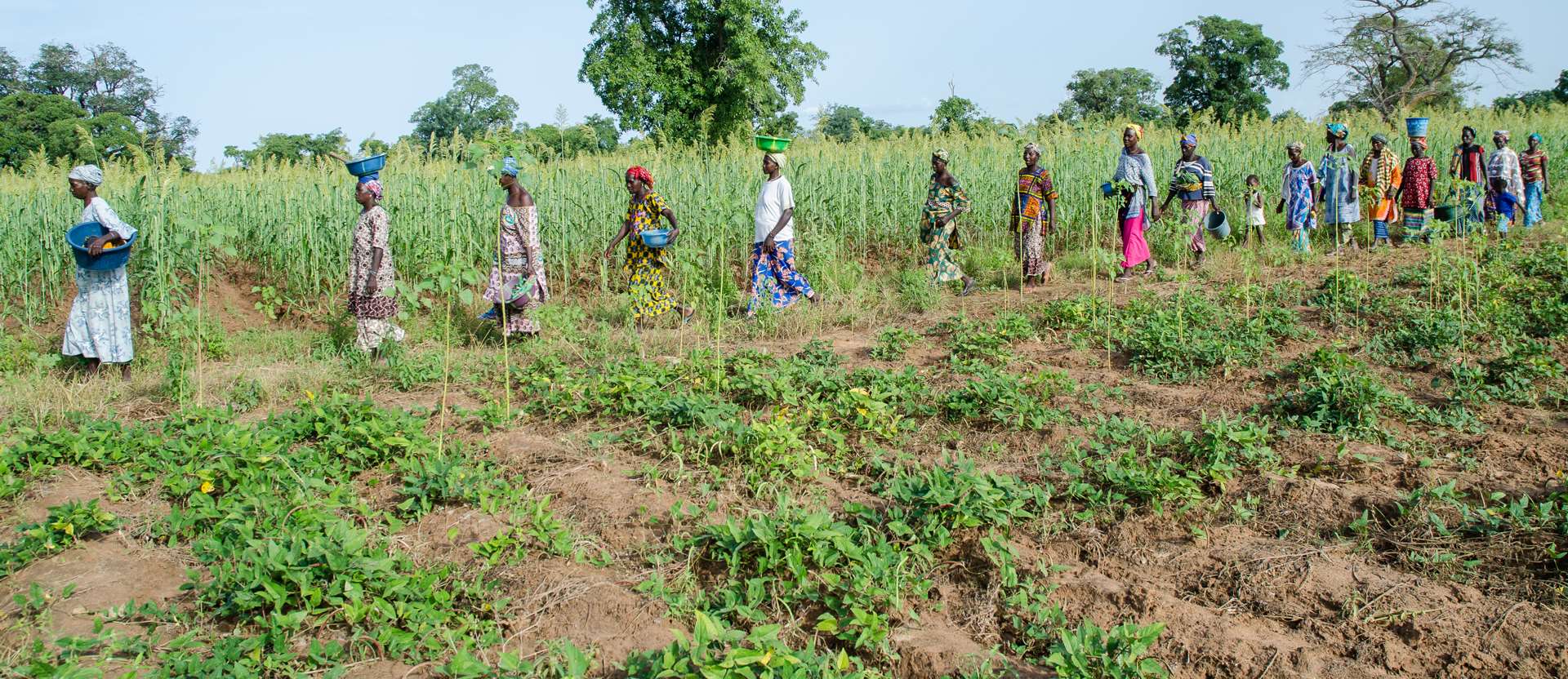
The Olympic Forest Growing Africa's Great Green Wall
17th June 2021The Olympic Forest initiative is part of the IOC’s commitment to tackling climate change and becoming ‘climate positive’ as an organisation. The project will be delivered by the charity Tree Aid, and will offset the IOC’s residual emissions for the period 2020–2024, by restoring land and planting new trees in the West African Sahel. It complements the IOC’s commitment to reduce their emissions in line with the Paris Agreement.
In this blog, Tree Aid CEO Tom Skirrow introduces how the project will work with local communities on the frontline of Africa’s climate crisis, to make ‘Responsible Offsetting’ truly sustainable – for people and planet.
A new initiative to tackle desertification in Africa
Today marks UN Desertification and Drought Day. This year, the focus is on investing now in healthy land as part of a green recovery; protecting lives, livelihoods and nature as we recover from Covid-19. The need to break the vicious circle of poverty, land degradation and rising temperatures has never been more urgent.
The climate crisis is the biggest threat to all of our futures, and an Olympian challenge requires an Olympian response.
That’s why I am delighted that Tree Aid will work with the IOC on their inspirational new project – The Olympic Forest – which launches today. The project will help speed the growth of Africa’s Great Green Wall, one of the biggest, boldest climate solutions in the world, and the centrepiece of the Olympic Forest project.
We were honoured to be approached by the IOC, particularly as we understand the need to look beyond carbon offsetting alone, to the more multi-faceted benefits the Great Green Wall can provide.
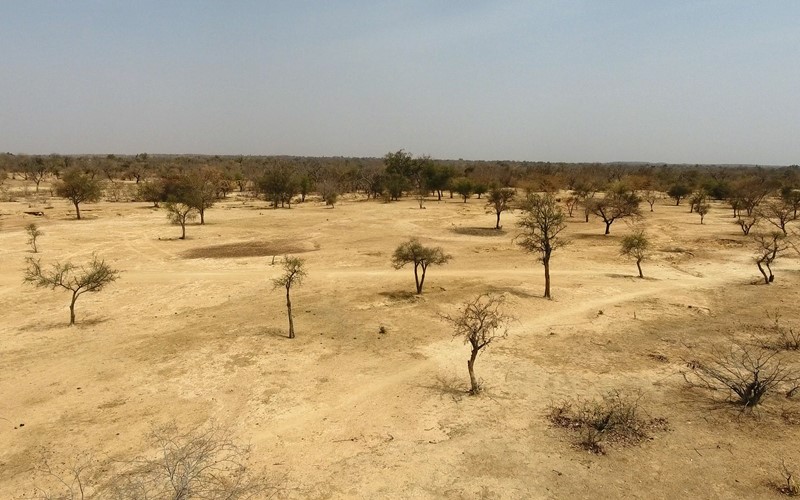
Image above: Degraded landscape in Burkina Faso, a country that Tree Aid works in. Photo © Tree Aid.
Tree Aid’s work in Africa
As Tree Aid’s CEO, I am proud to head an organisation offering positive, effective and lasting solutions at a time when rising temperatures, and rising poverty pose grave threats. Tree Aid’s work; restoring land and building the resilience of communities in the drylands of Africa, is rooted in decades of experience, tried and tested methods, and the expertise of local people.
The Great Green Wall is an African-led movement with an epic ambition; to grow a wide belt of trees, vegetation and fertile land across the Sahel. Originally envisaged as an 8,000km band of trees, this ambitious project is now much more, and has become a symbol of optimism for the whole region.
Globally, Africa is hardest hit by the climate crisis, despite contributing to it the least. Even though it is home to 17% of the world’s population, the continent only contributes 4% to global carbon emissions. In contrast, the world’s richest 10% produce around half of global emissions.
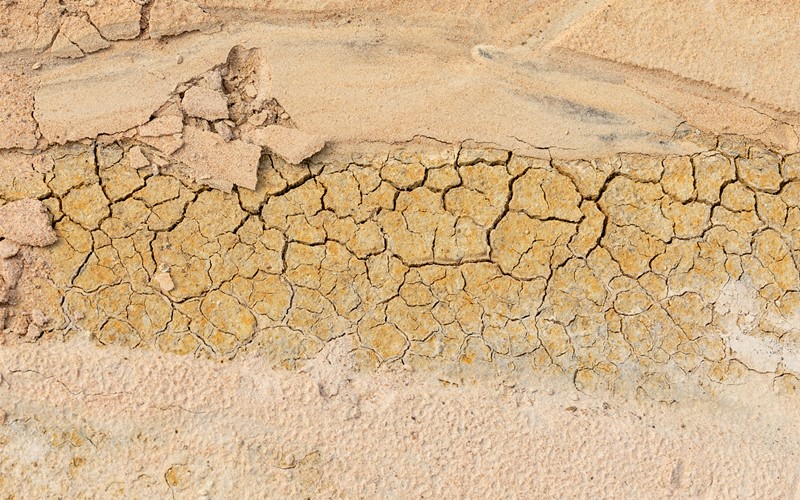
Image above: Degraded land in Ghana, a country that Tree Aid works in. Photo © Tree Aid.
The climate crisis has pushed up temperatures across the Sahel by nearly 1°C in the last 30 years, almost twice the global average. In Mali and Senegal, where the Olympic Forest project will take place, communities have seen erratic weather patterns with increased droughts and floods. This has led to a steady degradation of their land and sources of food.
In this context, the GGW provides hope. It is a beacon of biodiverse and sustainably managed land, providing nutritious food and green jobs for the millions of people living along its path. As a leading partner, Tree Aid has been helping to drive the work to bring Africa’s degraded landscapes back to life, reclaiming the land for people.
And why is tree-planting and land restoration so effective? Trees provide a solution to fighting poverty, as well as storing carbon. Well managed forests improve soil fertility and prevent land erosion. Tree roots stop the ground being washed away in floods, while leaves provide protection from the harsh sun.
Trees also provide financial resilience to communities, so that if crops fail due to floods or drought, fruit, nuts and seeds from trees can be eaten or sold. We work closely with local people to develop income generation schemes from Non-Timber Forestry Products (NTFP) such as nuts, seeds and fruits. These schemes particularly benefit women, both elevating their status within the community as well as providing dependable income for securing access to education and nutritious diets.
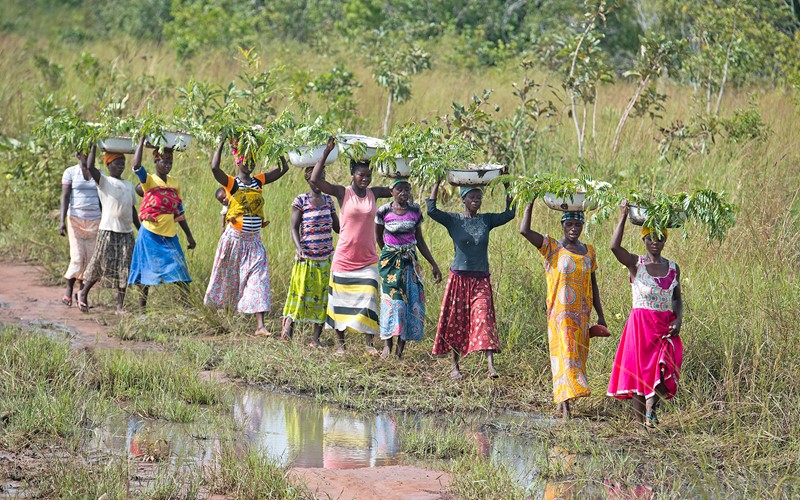
Image above: Women carrying tree saplings to plant as part of a Tree Aid project in Ghana. Photo © Rowan Griffiths, Daily Mirror.
The Olympic Forest in Mali and Senegal
The Olympic Forest will sequester 200,000 tonnes of CO2 equivalent across 2,120 hectares in Mali and Senegal.
The project will combine enrichment planting and promotion of agroforesty systems, with the new planting of approximately 355,000 native diverse trees. We will be working in villages in two sub-catchment areas of the Senegal River and all of the restored project areas will be sustainably planned and managed by local people.
The target areas face particularly severe challenges. Despite the importance of the sites as local sources of water for drinking and agricultural activity, both are severely degraded, made worse by very low rainfall. This is having a devastating impact on agricultural productivity, threatening the resilience of entire communities. Urgent intervention is needed to introduce sustainable resource management systems, restore ecosystems and reduce vulnerability to climate change.
Tree Aid will draw on tried and tested techniques and expertise from our long-standing projects in the Sahel, tailoring these to the needs and ideas of the local communities. The entire project will be certified by Plan Vivo.
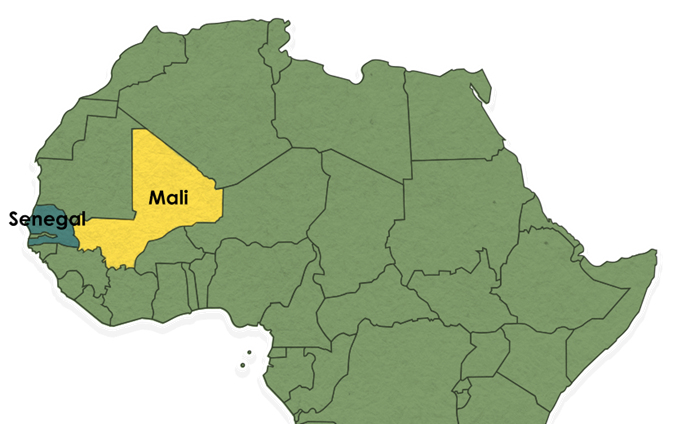
Image above: Map of North Africa showing Mali and Senegal where the Olympic Forest project will be implemented. Graphic © Tree Aid.
It’s not just about planting trees….
Prior to becoming Tree Aid’s CEO last year, I led our programme work as Director of Operations, so I’ve had the privilege of seeing first-hand the benefits, and lasting impacts of our work across Africa.
When it comes to carbon offsetting, Tree Aid has a unique approach. While forestry offsetting programmes have often been associated with tree-planting alone and have sometimes been criticised as a result, we take a more holistic approach to land restoration.
We never simply plant trees and walk away.
Tree Aid use proven agroforestry techniques, land and resource governance, restoration and conservation to create high-impact projects, which last.
Our monitoring, evaluation and learning is also iterative, we continually learn from our work and build on our successes. This recent project report from our programme in Mali is a good example.
Tree Aid supports communities to manage their own land, so they are better able to reap the benefits of the environment around them in the most sustainable way. This has been our mission for 35 years.
Always led, and co-designed by local people, Tree Aid’s projects make sure trees thrive to provide food and incomes today, while protecting the environment for tomorrow. Our projects encourage community management, supporting local people to establish land and forest agreements, rather than fencing off areas and planting without their input.
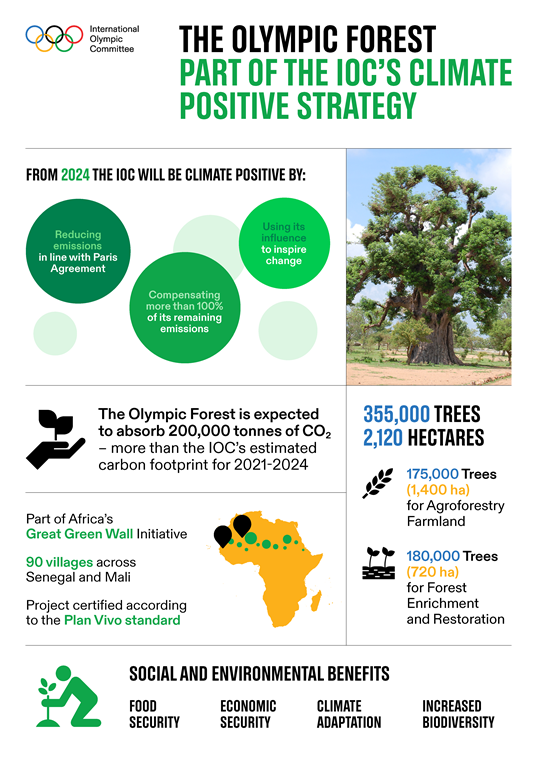 We work to find ways for human and plant life to coexist in a sustainable way, never imposing our projects. Our aim is to ensure communities see for themselves the benefits of locking in sustainability to their land management. This is central to creating a thriving ecosystem, where trees are protected and valued for everything they can provide. Responsible Offsetting will add an extra measure to our programme work, demonstrating the wider global benefits of land restoration and tree planting in the Sahel.
We work to find ways for human and plant life to coexist in a sustainable way, never imposing our projects. Our aim is to ensure communities see for themselves the benefits of locking in sustainability to their land management. This is central to creating a thriving ecosystem, where trees are protected and valued for everything they can provide. Responsible Offsetting will add an extra measure to our programme work, demonstrating the wider global benefits of land restoration and tree planting in the Sahel.
Robust monitoring, evaluation and ongoing learning
At Tree Aid we have highly robust monitoring in place. We are continually updating our monitoring systems; from tree survival rates to community management, and looking for where we can improve.
Our on the ground teams work with closely with embedded communities, using GPS tracking and industry standard tree survival rate systems to generate constant feedback on what is working, and what is not. With continuous, accurate reporting, we can make fast corrective actions when needed.
But Tree Aid is always looking for more ways to improve our efficacy and our transparency. We are now working with Crowther Labs on Restore.eco, a brilliant open source platform allowing us to feed in our own knowledge of on the ground realities, to assess alongside data from the most cutting edge satellite mapping technologies.
Restor are now the official partner of the UN Decade on Ecosystem Restoration which launched on 5th June, World Environment Day. They will provide a central platform for monitoring the Decade, and Tree Aid’s programme will comprise a core part of this work. Working closely, we will strive to improve our programme’s work, opening up our data, successes and failures to help build a bigger movement, accurately informed by on the ground evidence.
There is huge interest now in tree-planting to tackle climate change, and that is fantastic for all of us working in this area. But while Tree Aid has worked for decades on landscape restoration and livelihood development, we are relatively new to Responsible-Offsetting, and we are not shy to sound a note of caution.
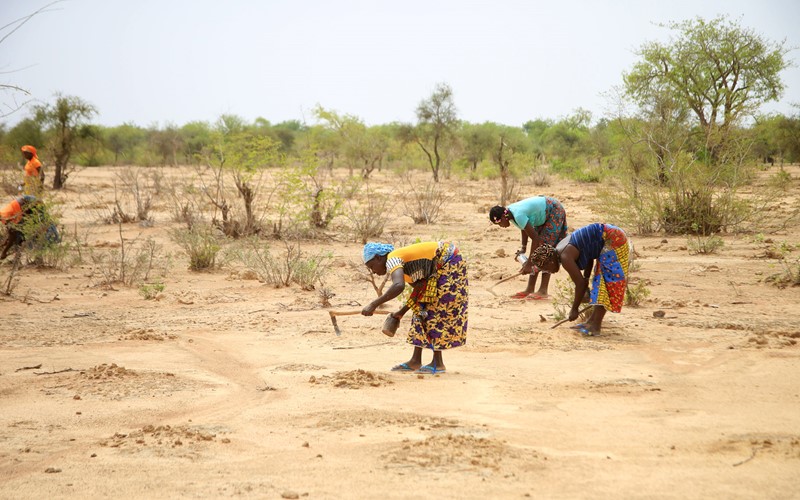
Image above: Community-led land restoration techniques being carried out as part of a Tree Aid project in Burkina Faso. Photo © Tree Aid.
Neither Tree Aid nor the IOC believe tree-planting is the only answer to the climate crisis. But, it is a vital part of the solution. And as we know, tackling climate-change sustainably will be a marathon not a sprint.
Keeping our focus on Tree Aid’s grassroots expertise, and commitment to community-led, designed and managed programmes will be critical to the success of the Olympic Forest over the coming years.
The Olympic Forest offers a real opportunity to show the potential of Responsible Offsetting to support the Great Green Wall. This is a model we will be monitoring closely, with potential for replication across its entirety, which is why today’s launch marks a particularly exciting moment for both Tree Aid and the IOC.
It is a tremendous honour to work with such an internationally renowned organisation as the IOC, and I am looking forward to sharing our progress and successes as we set off on our own Olympic challenge.


